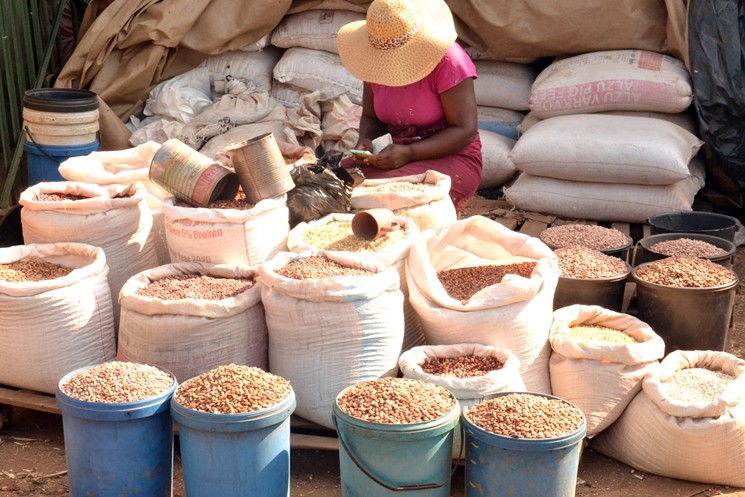Although many Africans living in rural people still think what comes from the city is superior, on the contrary, demand for indigenous food grown in rural areas is increasing in many African cities. Triggered by rising consumer awareness about the value of eating health and natural remedies, this trend is an opportunity for enterprising Africans to globalize African indigenous food. However, in order to successfully exploit this trend, the promotion of indigenous food should move beyond cooking competitions and food festivals to building strong supply chains complete with systems for retaining knowledge and indigenous food business models. Currently, every African city has a number of restaurants specializing on indigenous food but these are too few to cause full-scale transformation that gives the entire food system an African identity. What has given western food systems and fast foods a foothold are strong supply chains. What is preventing indigenous food from being promoted the same way if not even better?

From a scarcity mindset to the abundance mindset
Aggressive indigenous food entrepreneurship demands a shift from a scarcity mindset to an abundance mindset because, indeed, indigenous food is more abundant than external food. Emphasis should now switch from events like cooking competitions and food festivals to fluid knowledge sharing platforms and supply chains in production areas. While such local supply chains have existed for decades, they have lacked systems of converting raw commodities into products through intentional product development driven by modern science and government support. The supply chains have largely been driven by African territorial mass markets that are also revealing dynamic trends through which indigenous food systems are growing. There should be systems that specifically focus on building supply chains by following trends in terms of what is happening to indigenous food systems in the market and why. If trends are showing increased consumption by age, area and gender, that reveals how indigenous food systems are competing for sustainability.
Embedding indigenous food into education curricula
Systematically building community resilience by supporting the production knowledge base and supply chain actors and ensure community self-sustainability. When properly introduced, the knowledge sharing platforms can become part of the formal education system so that holders of indigenous knowledge become part of curricula developers so that indigenous food is inserted into the mainstream curricula. Grandmothers and grandfathers who are part of the community indigenous holders can be certified to support the indigenous knowledge-driven curricula that is different from the current formal curricula which is fast becoming irrelevant.
Such a knowledge base will have elements of resilience, livelihoods, business angles (potential for income earning) and risk mitigation around climate change. That kind of focus on all critical facets will ensure food security for everyone including business models connected to the market. Efforts to promote consumption can target the young generation most of whom find indigenous food alien. This important thrust is more about building blocks for competitive entrepreneurship around indigenous food systems in response to the skyrocketing demand for indigenous food from local urban consumers and Africans in the diaspora.
Some indigenous food products are being packaged for the global market by a few Africans in the diaspora who are setting up indigenous food restaurants in Australia, United Kingdom and USA for African and western consumers who feel honored by a competitive food market. All this has to be buttressed with systems that support knowledge production and diverse forms of value addition beyond just processing. Each African country’s trade promotion board (like ZIMTRADE in the case of Zimbabwe) can play a bigger role of taking indigenous food to the globe where real businesses can be established not just periodic exhibitions that are difficult to convert into viable business deals. At exhibitions, consumers can taste food and it ends there without concrete deals.
The power of documenting existing knowledge and practices
A lot of efforts to promote African indigenous food are happening but in a fragmented manner and would benefit more from documentation and consolidation. Promotion and consumption processes are already happening through relationships and several silent channels. Much can be learned from the many ways through which Africans promote their food systems which may be different from what happens in other parts of the world. Several undocumented methods are being used to promote African food. Given that most communities are built around core food systems, less effort may be required to promote indigenous food in certain communities. The fact that food is part of people’s identity implies there might be no real need to campaign but just document and show the world what exists in particular communities. Such knowledge includes how food is exchanged between relatives, households, markets, rural to rural, urban to rural and many other channels.
charles@knowledgetransafrica.com / charles@emkambo.co.zw /
Website: www.emkambo.co.zw / www.knowledgetransafrica.com
Mobile: 0772 137 717/ 0774 430 309/0712737430
